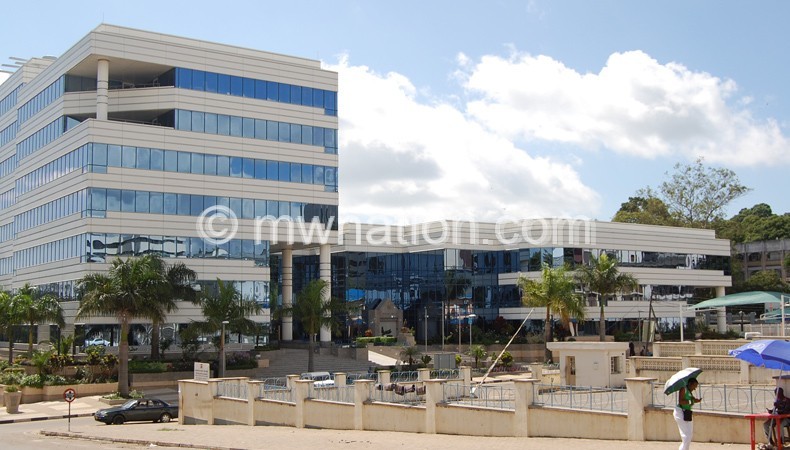RBM cautious on bank rate
Reserve Bank of Malawi (RBM) has hinted that it is currently monitoring the market with keen interest on the possibility of effecting a policy rate (bank rate) cut in view of the falling inflation rate.
The central bank, speaking on Tuesday through its public relations officer Mbane Ngwira, says it is conscious of some major downside risks in the economy that could prohibit its Monetary Policy Committee (MPC) to revise downwards the policy rate currently at 25 percent.

The market is anticipating a possible cut in the policy rate—the rate at which banks borrow money from the central bank—on account of plummeting average prices of basic goods and services in the economy or inflation.
The rate of inflation has been on downward spiral since December 2014 from 24.2 percent registered during the month to 18.2 percent as at March 2015, according to the National Statistical Office (NSO).
The rate peaked to as high as 37.9 percent in February 2013.
The falling inflation rate has been buoyed by both the recent fuel price cut and the appreciation of the local currency against major convertibles as well as a decrease in both food and non-food inflation.
Following such a drop in the rate, economic commentators such as Nico Asset Managers Limited have in recent weeks speculated that the move could prompt RBM to reduce the policy rate which could also result in commercial banks easing their respective base lending rates currently hovering around 40 percent.
But in an interview Ngwira said RBM is cautiously “forward looking” on the market.
“Right now government is in deficit and if this deficit goes deeper, that will imply more pressures on inflation rate and as such we have taken a wait and see stance,” said Ngwira.
Recently, the fiscal deficit was revised upwards by the European Intelligent Unit (EIU) to 4.1 percent of GDP from 3.5 percent.
He also cited the expected low maize harvest as one risk threatening a policy rate cut.
Ngwira said the timing in financing the expected maize shortage will also be key in the bank’s decision to cut the policy rate.
“If the maize is purchased now, there will be enough supply and that will have no impact on inflation,” he said.
Maize availability in Malawi traditionally dictates the pace of inflation as it is attached more weight in the consumer price index (CPI), a basket used to compute inflation rate.
A latest market commentary by Nico Asset Managers Limited stated that the monetary policy rate may be adjusted downwards if the inflation rate reduces significantly.
RBM last revised upwards the policy rate in October 2014 to 25 percent from 22.5 percent.
And the recent second MPC of RBM for the year 2015 held towards the end of last month also decided to maintain the policy rate at 25 percent.
In the meantime, RBM has put the December 2015 inflation target at 12 percent, but according to a University of Malawi’s Chancellor College economics professor Ben Kaluwa, the target is a tall order and ambitious in the wake of expected drop in output due to ravaging floods that hit the country in January.





